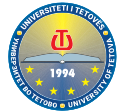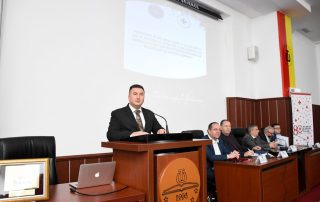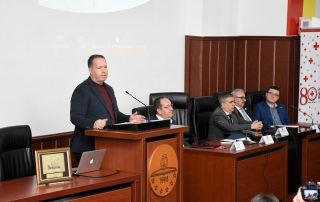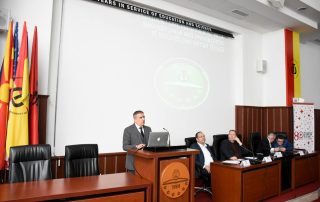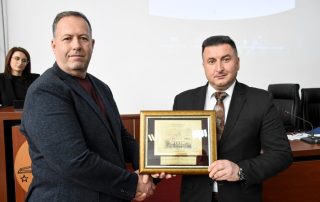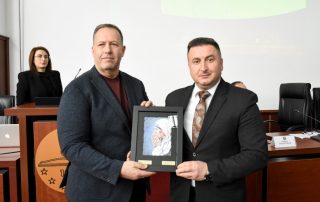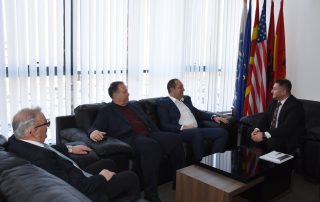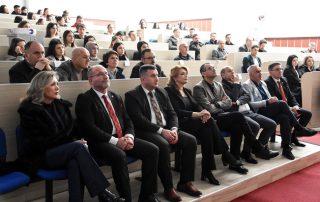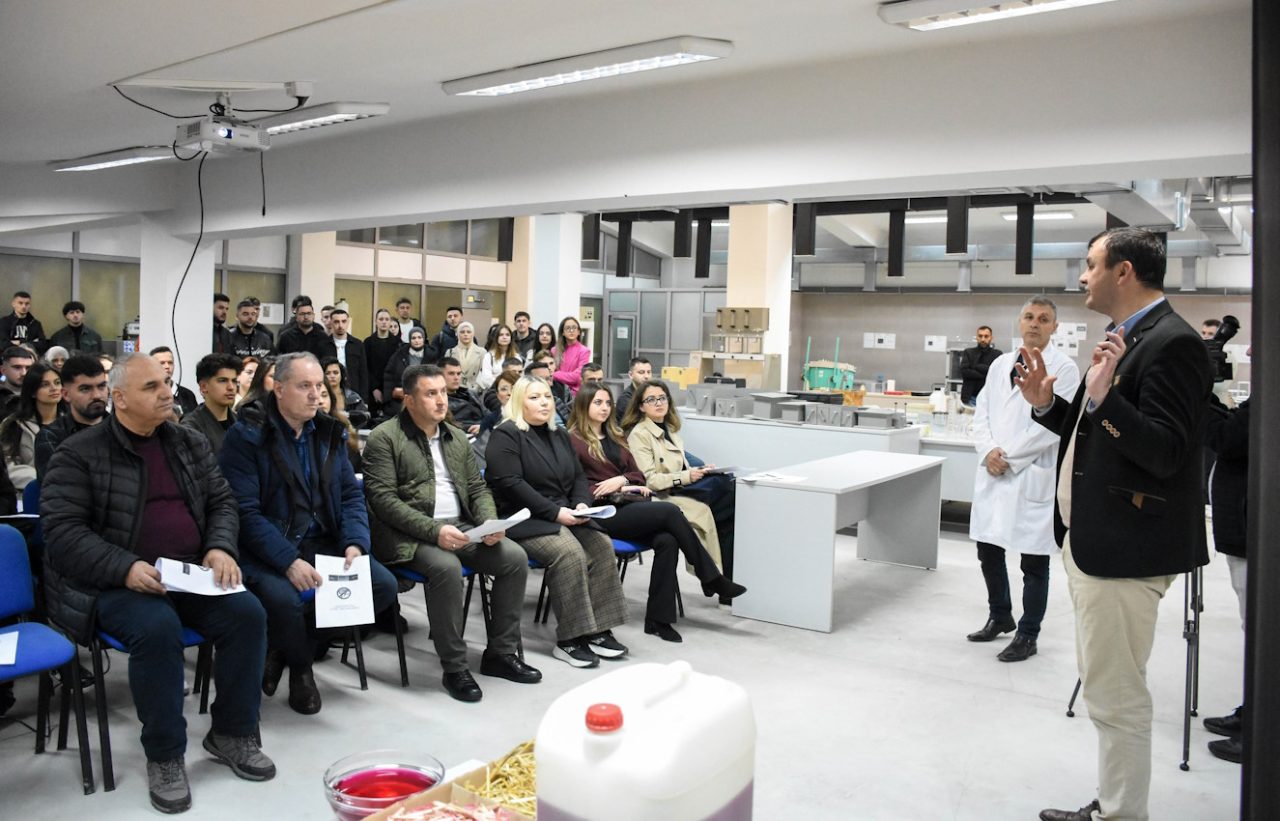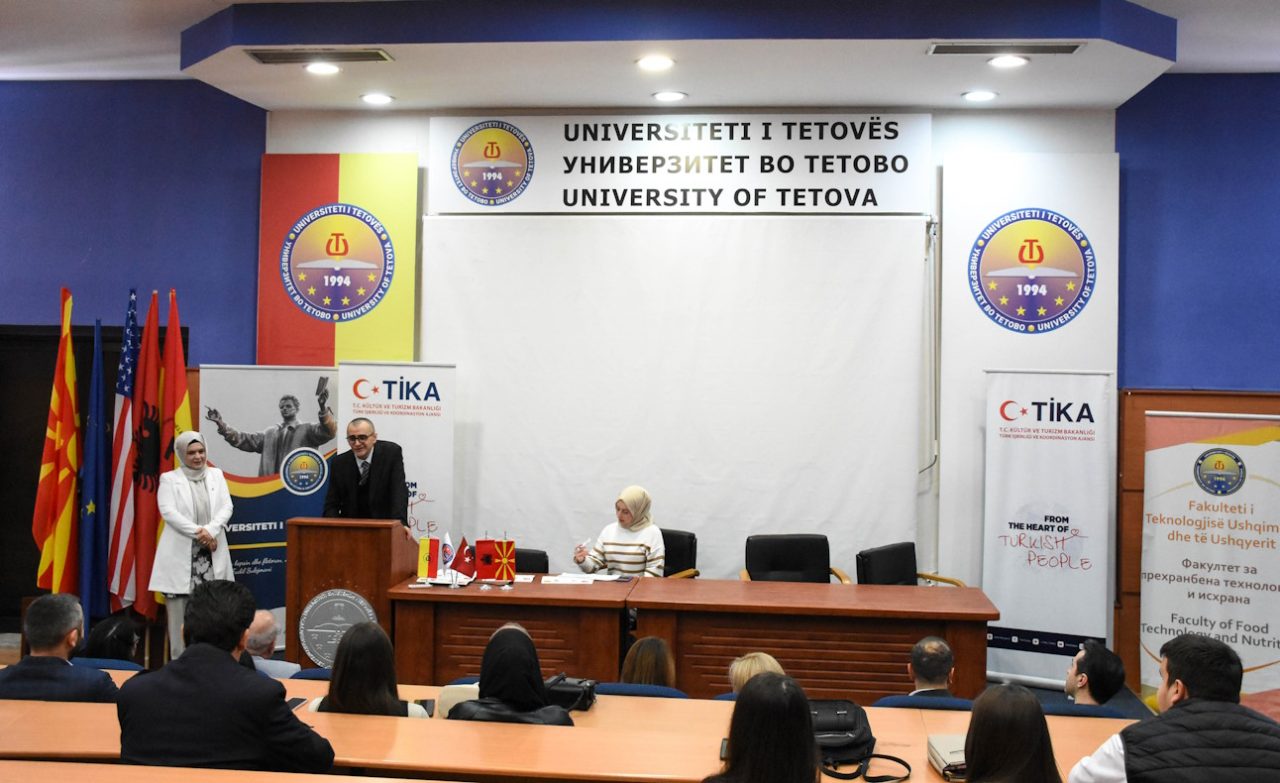On the occasion of the 80th anniversary of the foundation of the Red Cross in our country, today at the University of Tetova was organized a panel discussion, and took place the promotion of the platform for cooperation between the Red Cross and the university community. This platform includes, among other things, the involvement of students and staff in humanitarian activities through research and practical projects; the development of joint programs for emergency management, first aid, and psychosocial support; as well as scientific study of humanitarian challenges and the creation of innovative social strategies.
The Rector of the University of Tetova, Prof. Dr. Jusuf Zejneli, emphasized that the Red Cross has a long history of service and mobilization in helping all those in difficult situations, always keeping its noble mission in mind: to help people in need, regardless of race, ethnicity, or beliefs. Thus, a special aspect of the Red Cross’s work is its cooperation with educational institutions, including the University of Tetova. “This cooperation is an excellent model of interaction between humanitarian organizations and academic institutions, where young people are educated not only for professional knowledge but also for a sense of humanity and social responsibility. Through this partnership, students have the opportunity to participate in first aid training, engage as volunteers in the activities of the Red Cross, and contribute to various campaigns to help society. In this regard, the cooperation with the University of Tetova has yielded excellent results. Moreover, the Red Cross and the University of Tetova have so far regularly organized blood donation campaigns, raising awareness among young people about the importance of this humane act, which saves lives every day. Another important aspect of this cooperation is the involvement of students in voluntary activities, where they have the opportunity to contribute directly and develop a sense of solidarity and humanity”, said, among other things, the Rector of the University of Tetova, Prof. Dr. Jusuf Zejneli.
The Secretary General of the Red Cross, Dr. Sait Saiti, spoke about the experiences and best practices from previous cooperation as a foundation for developing new tools, strategies, and knowledge to improve the well-being of citizens. “Today, we are here with a desire and goodwill from the Red Cross to enrich what we are as an organization with a new beginning, which implies a more intensive and mutual collaboration with state universities primarily, and then with all other universities in North Macedonia. Our belief is that there is potential in universities, which allows us to renew our activity and operations. As an organization, we must complement our humanitarian aid with other aspects of activities, which represents our new ambition to present ourselves or take on the role of a more avant-garde organization in our country, with the aim of taking responsibility for a part of the events or a part of the future of our state”, said, among other things, the Secretary General of the Red Cross, Dr. Sait Saiti.
The Dean of the Faculty of Economics, Prof. Dr. Brikend Aziri, and the Secretary General of the Red Cross, Dr. Sait Saiti, elaborated in detail their views and discussed the possibilities for cooperation. At the conclusion, the President of the Senate, Prof. Dr. Kenan Ferati, presented the topic of creating new mechanisms for cooperation and joint development between the two institutions. This panel discussion was moderated by Professor and former Dean of the Faculty of Pedagogy, Prof. Dr. Fadbi Osmani, and Prof. Dr. Nikolla Dujovski from the Red Cross.
It should be emphasized that the University of Tetova and the Student Parliament of UT, in cooperation with the Red Cross or through their own initiative over the years, have carried out dozens of humanitarian actions, such as: providing aid to our brothers from the Republic of Kosovo in 1999, in the Stenkovec Camp in Skopje; in 2015, after the floods in Šipkovica, Rečica, and the Skopje region, and the release of students from these regions from participation; distributing various forms of aid, including financial support, after the earthquake in Albania in 2019 and the earthquake in Turkey in 2023; furthermore, UT has supported the annual blood donation campaigns organized by the U.S. Embassy in our country following the September 11th attacks in 2001, as well as many other public activities related to free health checks carried out by students of the Faculty of Medical Sciences.
